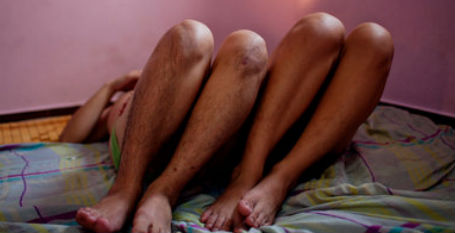“The evidence clearly shows that MSM in Vietnam are a population at a higher HIV risk that requires focus,” said Christopher Fontaine, an adviser for UNAIDS, the Joint UN Programme on HIV/AIDS in Vietnam.
“Out of all of Vietnam’s sub-epidemics, the epidemic among MSM appears to be rising the fastest,” he told trust.org.
The HIV prevalence rateof MSM have risen highest in Vietnam’s two largest cities. Hanoi saw an increase from 11 to 20 percent, while in Ho Chi Minh City it more than doubled from 6 to 14 percent between 2006 and 2009, according to the Integrated Biological and Behavioural Surveillance survey.
Although same-sex relationships are legal in Vietnam, it is still seen by Vietnamese society as a taboo and is not well accepted by society, Fontaine said. “Men who have sex with men must enter an underground system in order to form sexual relationships. This is a huge barrier to reaching them with HIV services.”
It is not uncommon for people with HIV to face discrimination and for parents to disown their offspring, say health and social workers.
A gay university student living in Hanoi who discovered that he had HIV after he donated blood, said he has been careful not to reveal his HIV status or sexual orientation as he is afraid of double stigma.
Such fear makes it particularly difficult for outreach workers to accurately tabulate either the HIV prevalence or the number of MSM population roughly estimated at 285,000.
But one thing is sure that new infections are increasing for MSM but that there are only a limited number of them seeking help, said Son Minh, executive board member of the Vietnamese Network of MSM and Transgender People.
“It’s our biggest concern since we cannot educate them on safe sex,” he said.
Vietnamese lawmakers say the country is being progressive as since 2000 has stopped describing same-sex relations as a “social evil,” and since last November scrapped fines against marriage between same-sex couples.
Nonetheless, more than half of the people recently surveyed nationally say they are opposed to same-sex relations and the legalization of same-sex marriage.
This is largely because the majority of Vietnamese people wanting to propagate their family name are prejudiced against same-sex relations and afraid of losing face value if a friend/family member is gay.
“Vietnam’s health authorities fully acknowledge the need to focus on MSM, but they struggle to address it,” Fontaine said.

